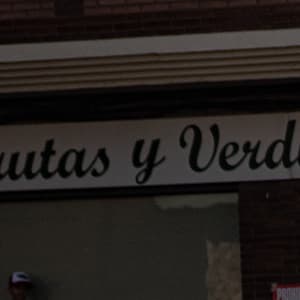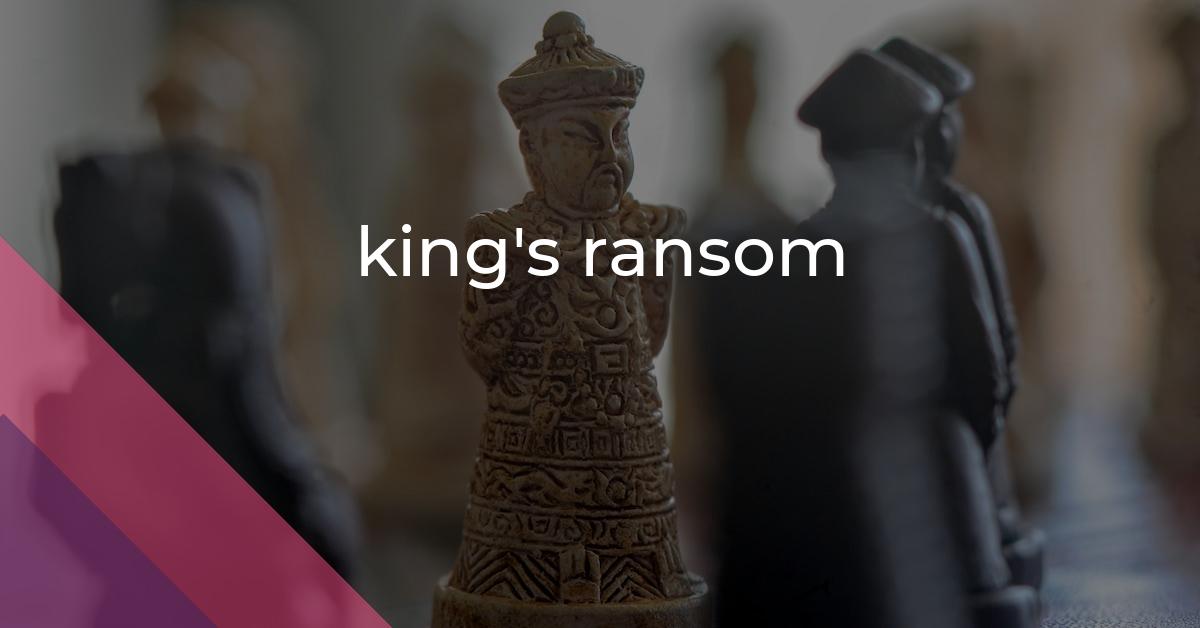king’s ransom: Idiom Meaning and Origin
What does ‘king's ransom’ mean?
The idiom "king's ransom" means an extremely large or exorbitant amount of money or valuable things.

Idiom Explorer
The idiom "king's cushion" refers to a position of power or privilege. It implies being in a comfortable and influential role that is highly regarded and protected. This idiom is often used to describe someone who has a coveted or enviable position in society.
When someone is referred to as the "king of the castle," it means they are in a position of power or authority and have control over a particular situation or group of people. This idiom can also imply a sense of dominance and superiority.
The idiom "king of birds" refers to the bird that is considered the most powerful, dominant, or superior among other birds.
The idiom "keys to the kingdom" means having access to the most important or valuable things, often referring to having complete control or authority over a situation, organization, or valuable information.
"Jewel in the crown" refers to a valuable or prized possession that stands out from the rest. It symbolizes something exceptional or superior within a larger context.
The idiom "in the money" means to be in a financially successful or prosperous situation.
The idiom "highway robbery" refers to a situation where someone is charged an exorbitant or unfair price for something, similar to being robbed while traveling on a highway.
The idiom "high-stakes" refers to a situation in which there is a significant potential gain or loss, usually involving a lot of money or important consequences.
The idiom "have more money than God" means to be extremely rich or wealthy beyond imagination.
Behind the Treasure
The idiom "king's ransom" originated in medieval times and has roots in the practices of the English monarchy. It refers to a very large sum of money or a valuable possession. The word "king" is associated with wealth, power, and authority. "Ransom" refers to the price paid to secure the release of a captive. Together, the idiom implies an exorbitant amount or value, often used to emphasize the high cost or value of something.
Historically, a ransom was commonly demanded for the release of prisoners, especially royalty or nobility held captive during times of war or conflict. The captors would demand a significant sum of money or valuable assets in exchange for the freedom of the captive. The term "king's ransom" specifically refers to the extravagant amount of money required to secure the release of a king.
The use of this idiom in everyday language draws upon the historical and cultural significance of the monarchy and the idea of vast wealth associated with a king. It suggests an immense amount, often used hyperbolically to convey the idea of a considerable price or worth.
The idiom "king's ransom" is frequently used in contexts where the value or cost of something is being emphasized. For example, one might say, "He paid big bucks for that rare book" to indicate that a significant amount of money was spent on the purchase. Similarly, someone might remark, "The price of that luxury car is a king's ransom!" to convey the idea that it is extremely expensive.
The concept of a "king's ransom" has extended beyond its original context to encompass various domains, such as business and sports, where the expression is used figuratively. In these contexts, the idiom underscores the notion of an exorbitant price or a high value placed on a particular item or service.
While the origin and meaning of the idiom "king's ransom" are well-established, its continued usage in contemporary language reflects a cultural fascination with royalty and wealth. The idiom encapsulates the notion of opulence and serves as a vivid linguistic device for emphasizing the cost or value of something.
The idiom "big bucks" is another expression that signifies a large sum of money. It is often used to convey the idea of substantial wealth or a significant financial investment. When combined with the idiom "king's ransom," it amplifies the notion of a substantial amount or value being emphasized. For instance, one might say, "He paid big bucks, a king's ransom, for that rare book" to emphasize the considerable amount spent.
The idiom "keys to the kingdom" is used to suggest the granting of great power, influence, or authority. When used in conjunction with the idiom "king's ransom," it creates a potent image of unlocking vast wealth, authority, or control. For example, one might say, "With his big bucks, he gained the keys to the kingdom" to emphasize the idea of acquiring significant power and influence through wealth.
Ultimately, the idiom "king's ransom" represents an enduring linguistic device that taps into the historical and cultural associations of wealth, power, and opulence. It effectively communicates the idea of an exorbitant amount or value, making it a valuable addition to the English language.
Example usage
Examples of how the idiom "king's ransom" can be used in a sentence:
- He offered a king's ransom to the thief in exchange for the safe return of his stolen necklace.
- The extravagant wedding was said to have cost a king's ransom.
- After years of hard work and dedication, she finally sold her business for a king's ransom.
The idiom "king's ransom" is typically used to describe a large or exorbitant amount of money. It suggests that the amount is so significant that it resembles a ransom fit for a king, emphasizing its immense value or worth.
More "Valuables" idioms



